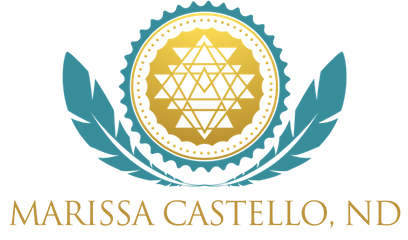Can the Mighty Mushroom Help Tame Treatment-Resistant Depression?
The Mighty Mushroom
Promising Evidence Suggests it Does
Researchers have discovered that psilocybin, the active ingredient in magic mushrooms as they are more commonly known, may help safely and successfully treat a wide range of conditions such as depression and anxiety, and even alcohol and tobacco addictions.
The recent results of a study found that the psychedelic reduced depressive symptoms at least as much as an antidepressant called escitalopram, better known by its brand name Lexapro.
This randomized controlled trial took place over the course of six weeks and involved treating participants with medication and intensive psychotherapy, which included a mix of in-person and phone sessions. Participants also received two psilocybin therapy sessions with a psychologist and/or psychiatrist who supervised the healing experiences.
Participants aged 18 to 80 were split into two treatment groups. One group received daily antidepressants and two small doses of psilocybin while the other received daily placebo pills in place of the antidepressants.
Each participant had a major depressive disorder diagnosis and had been instructed to cease taking any current medications before starting the study. Researchers and participants were both unaware of which treatment they would receive. To keep expectations level, both cohorts were told they would receive psilocybin, but they did not reveal the dose amount.
Psilocybin has been known to produce potent, vivid, and multicolored hallucinations, so the investigation team made sure to create a soothing environment during the sessions.
Outside experts argued that the design of the study prevented investigation into whether psychedelic mushrooms were actually better at improving well-being than escitalopram, something that they called an “unfortunate” limitation.
What are Magic Mushrooms?
Magic mushrooms are hallucinogenic fungi that contain psilocybin or psilocin. Psilocybin (4-phosphoryloxy-N,N-dimethyltryptamine) and psilocin are chemical compounds found in certain types of hallucinogenic mushrooms found in Mexico, South America, and the United States. These compounds have a structure similar to lysergic acid diethylamide (LSD) and are used for their hallucinogenic and euphoric effects.
The hallucinogenic (psychedelic) effects are likely a result of action on the serotonin (5-HT) receptors in the central nervous system.
They are listed as a psychedelic class of drugs by the FDA in the United States.
How Psilocybin Therapy Works
When psilocybin is consumed orally, it becomes psilocin in the body. This compound then binds with the 5-HT2C serotonin receptor in the brain that regulates neurotransmitter chemicals that help control feelings such as appetite, cognition, imagination, mood, anxiety, and overall perception.
It is believed that the compounds found in magic mushrooms produce a type of ‘reset’ in the mind by elevating consciousness and emotional response which in turn provides a release of negative emotions and perceptions. When the reset occurs, depressive symptoms are reduced in the individual that consumed psilocybin.
The antidepressant effects of psilocybin are said to occur by interfering with negative thought patterns and feelings related to sadness, isolation, and past trauma, instead, encouraging a sense of expansiveness and loving connectedness to nature, animals, and the cosmos.
Magic mushrooms also seem to have the potential to lower overall stress levels, improve mood, and assist with intense emotional breakthroughs.
Previous studies have shown that psilocybin-containing mushrooms restore receptiveness to intense emotions and allow for a fresh perspective on past circumstances and current behaviors.
Psychedelic Assisted Therapy Gives Hope for Treatment-Resistant Depression
With ongoing psychological support, researchers are hopeful psilocybin therapy can provide a non-addictive treatment for those who are not responding well to traditional depression treatments.
Because of their Schedule 1 drug classification, psilocybin mushrooms are currently illegal to possess in the United States. Advocates of the therapy are working to have Psilocybin’s classification moved from the FDA’s Schedule 1 to Schedule IV drug classification so that practitioners may be able to prescribe magic mushrooms as part of a treatment plan in certain cases.
Until then, the climate around psychedelics continues to improve, research continues to show promising results, and more research on the subject is in the pipeline.
“Trial of Psilocybin versus Escitalopram for Depression” 15, April 2021, https://www.nejm.org/doi/full/10.1056/NEJMoa2032994.
"Psilocybin for treatment-resistant depression: fMRI-measured ...." 13 Oct. 2017, https://www.nature.com/articles/s41598-017-13282-7. Accessed 7 Oct. 2020.


